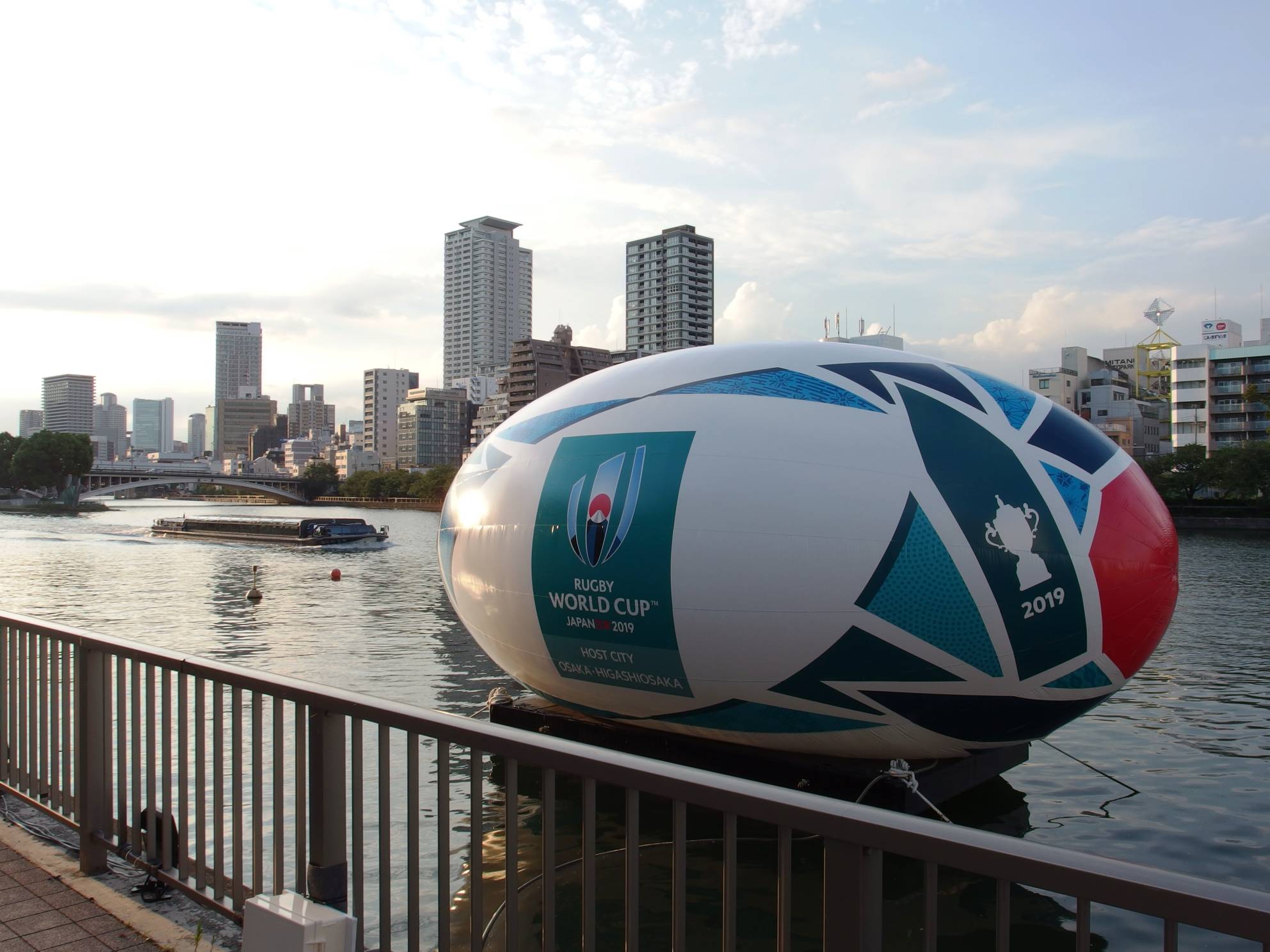How the 2019 Rugby World Cup has suffered due to a lack of organisation

When Japan were announced as the hosts for the 2019 Rugby World Cup on 28th July 2009, then-President of the JRFU Yoshiro Mori said: “the God of rugby smiled on us today.” Over a decade later, and the tournament is in full swing.
Japan are the first Asian nation to stage the tournament: their bid for hosting rights included plans to hold additional games in Hong Kong and Singapore, although this plan was rejected by World Rugby in 2009.
Staging a tournament like the Rugby World Cup during Japan’s typhoon season was always going to bring about new challenges, and this is something that the event’s organisers seemed to be preparing for.
In an interview with AFP, quoted by the Guardian in September 2018 , the tournament’s director Alan Gilpin addressed concerns about the impact of volatile weather conditions on the World Cup: “We are planning right through from what happens if a team hotel is lost, what happens if a training venue is lost, through to what happens if one or more match venues are lost. Where do you relocate matches to, what are the time frames, how does that affect transport, planning, moving teams around? We are working through all those scenarios.”
Gilpin also said that the competing teams were being made aware of “the need to have contingency plans in place.”
However, as Japan was rocked by Typhoon Hagibis just three weeks into the tournament, Gilpin’s assurances seem to be nothing more than lip service.
Three group stage matches were cancelled, due to concerns about the safety of players and fans: England v France, New Zealand v Italy, and Namibia v Canada.
The decision to cancel the matches outright instead of postponing or relocating them has left many people reeling, and suggests that the World Cup’s organisers did not in fact have a proper contingency plan in place in the case of volatile weather.
The safety of those involved with tournaments such as the Rugby World Cup is certainly paramount; however, certain teams have arguably been given an unfair advantage by the cancellation of matches.
While England and France had both already qualified for the quarter-finals when their match was cancelled, France were unable to challenge England for the top-spot in Pool C and they finished behind England in second-place.
The cancellation of Italy’s match against New Zealand ended their chances of progressing to the quarter-finals, as they would have needed a win against the All Blacks to do so.
After days of uncertainty, Scotland’s final match against Japan went ahead much to the delight of those in the Scottish camp: had the match been cancelled, they would have automatically failed to qualify for the quarter-finals, much like Italy.
While the Tartan Army did miss out on a place in the quarter-finals, losing to the hosts 28-21, it is better that they did so fairly, rather than having their fate decided for them by the event’s organisers.
The organisers of the World Cup must accept responsibility for failing to adequately prepare for the chaos caused by the typhoon.
While no one is at fault for the weather, it is hardly a surprise that a tournament held in a country prone to typhoons during typhoon season has been affected.
There was ample time – over a decade – for the tournament’s organisers to assess the risk of the tournament being disrupted by Japan’s typhoon season, and create a real contingency plan to ensure that any disruption that would occur would be minimal.
As for Formula One, the final practice and qualifying sessions for the 2019 Grand Prix were moved to the next day as Typhoon Hagibis hit Suzuka. The race went ahead as planned, without compromising the safety of anyone involved.
Formula One and the FIA presumably learnt lessons from the 2014 Japanese Grand Prix, in which Jules Bianchi suffered a fatal collision in part due to heavy rains caused by Typhoon Phanfone.
Excluding countries which are prone to bad weather from hosting sports tournaments would be wildly unfair, so proper planning and execution are key.
Rugby must learn from Formula One and not allow the excitement of staging a tournament detract from planning for all eventualities.
Whether that means staging tournaments at different times of the year or having a flexible schedule which allows matches to be postponed if necessary, sports must find a way to prioritise safety, while not letting the competition aspect suffer.
Featured image/Mc681/WikiCommons